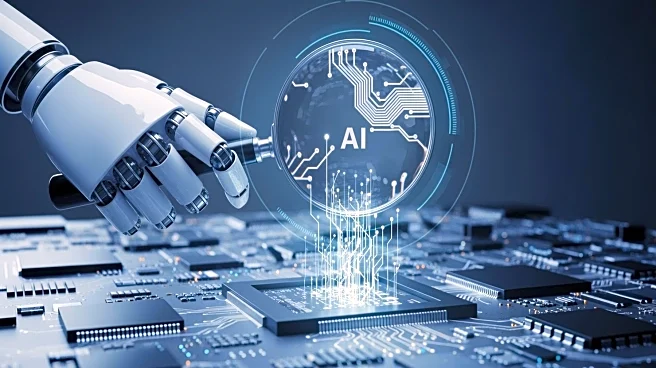What's Happening?
Artificial intelligence is increasingly being integrated into healthcare through advanced medical devices and diagnostic tools. However, these innovations face significant regulatory and legal challenges.
The Food and Drug Administration (FDA) is updating its regulatory framework to ensure these technologies are safe and effective, while U.S. patent law is grappling with issues of inventorship and patent eligibility. The FDA's recent guidance aims to balance innovation with safety by allowing pre-specified updates to AI models, while patent law continues to restrict AI systems from being recognized as inventors.
Why It's Important?
The dual challenges of FDA regulation and patent law significantly impact the development and commercialization of AI-enabled healthcare technologies. Regulatory hurdles ensure patient safety but can slow down the introduction of new technologies. Meanwhile, patent law issues can hinder innovation by creating uncertainty around intellectual property rights. These challenges highlight the need for a coordinated approach to regulatory and IP strategies, which could accelerate the time to market for new technologies and enhance their protection. This is crucial for maintaining the U.S.'s competitive edge in healthcare innovation.
What's Next?
Developers of AI-enabled healthcare technologies are encouraged to engage with regulators early to align on safety and efficacy requirements. Proactively designing change control plans can facilitate efficient updates to AI models, while a coordinated patent strategy can help secure intellectual property rights. These steps are essential for overcoming regulatory and legal barriers, ensuring that innovative technologies can reach the market and benefit patients. The ongoing evolution of regulatory and patent frameworks will continue to shape the landscape for AI in healthcare.










